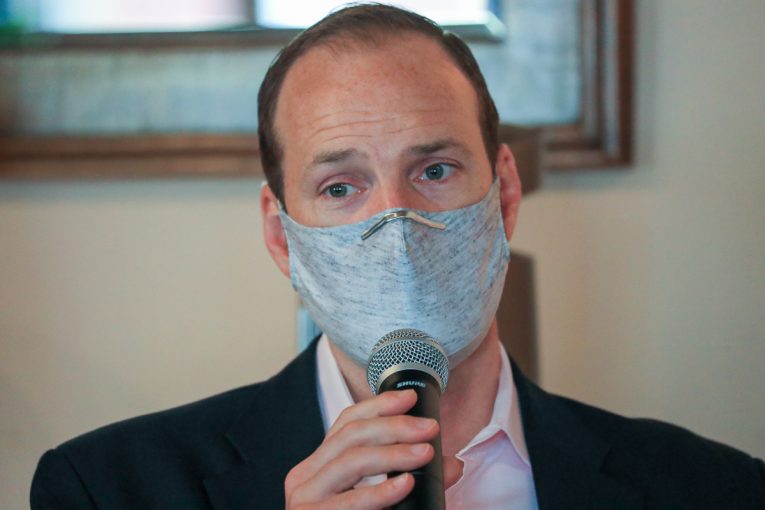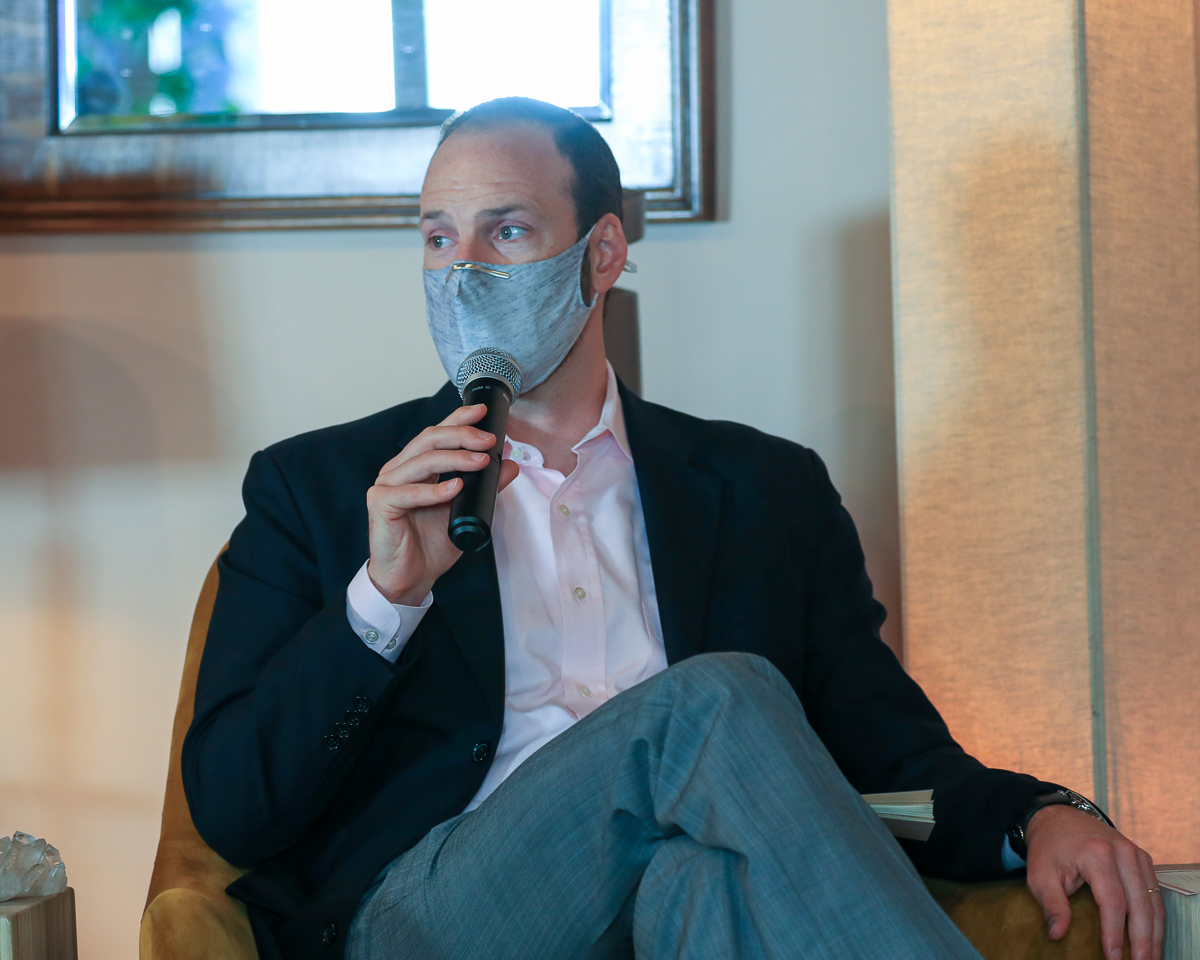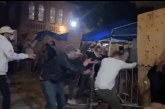

(Editor’s Note: The following were opening remarks by San Francisco DA Chesa Boudin at Manny’s in San Francisco on Wednesday, July 28, 2021.
Boudin hosted a live summit: “Public Health is Public Safety: Behavioral Health Care in San Francisco.”
The event featured public health and criminal law experts, personally impacted people, and community leaders to explore solutions to the behavioral health crisis on our streets. District Attorney Boudin moderated the event and delivered opening remarks, in which he emphasized the need for proactive solutions that treat behavioral health needs as public health ones.
“My priority as District Attorney is ensuring that San Francisco both is and feels safe for all who live here. To do so, we must address the crisis on our streets, where there are many people living with unmet behavioral health needs,” said District Attorney Boudin. “I am proud to have hosted this important summit to develop solutions towards promoting public health approaches to behavioral health issues.”
The following are verbatim his opening comments addressing critical needs for a behavioral health approach in the criminal legal system.)
Remarks by DA Chesa Boudin:
I genuinely believe that there is no more important issue when it comes to public safety than public health, particularly behavioral health.
San Francisco County Jail has long been the number one provider of mental health in the state. And I don’t say that as a criticism or a condemnation in any way on the high quality healthcare work that’s being done right now. I say that as a recognition that somewhere upstream, we have opportunities to intervene at work here.
And if we had taken advantage, if we had found ways to provide the same services that are being provided once people were in the jail, we could’ve prevented a crime from occurring. We could have prevented a victim from being harmed. And we could’ve intervened in ways that were more cost-effective, more humane and more consistent with the values that we as a city are proud of.
Every one of us in this room and in this state has had the experience of walking down the street, whether it’s Valencia, or Market or Lincoln or Fell or Oak. We’ve all walked down a street and seen someone, obviously in crisis, obviously in need of behavioral health.
And most of us don’t know what to do in that situation. Do we step around him in disgust and fear and desperation? How do we get them to help that they so obviously (need), and how do we feel safe walking around our own neighborhood? How do the folks living on the streets, sleeping on the streets, feel safe (inaudible)? This is not a problem unique to San Francisco. Any major city in California is dealing with a housing crisis, the behavioral health crisis, with a substance crisis. And yet if we don’t solve this problem and we don’t find ways to move forward with concrete achievements when it comes to reducing the visible challenges of behavioral health on our streets, then no matter what crime statistics show us, far too many will not be or feel safe in our community.
Now, one of the challenges for me as a district attorney and for all of us in the criminal legal system, whether we are public defenders, prosecutors, police, probation officers, what have you, is that we have really imperfect tools and solutions to complicated public health problems.
I want to give you a couple of examples, one from my time as a public defender and one from my time as District Attorney of San Francisco, of the shortcomings, of the failure if you will, of the criminal legal system as a response to a behavior health crisis.
These are some examples that I know from my own experience. I don’t want to hold (them) out as more than an example. They’re anecdotes. But I know that every single day, similar things occur throughout our city, through out our (inaudible), throughout our court systems.
Years ago, when I was a public defender, one of my first felony cases that was set for trial, was a case involving a young man, tall thin, lanky Caucasian severely, mentally ill—he was what we would call diagnostically appropriate for behavioral health court, someone who met all of the diagnoses and mental health history requirements for getting into the behavioral health court. Specialty court in San Francisco aimed at providing mental health treatment to people whose arrest or criminal conduct was based on underlying (mental health conditions). He was willing to do it, but because he had his various state benefits from a different county at that time, there was no way to get him services in San Francisco.
And so as a zealous advocate for my client, I said, well, he’s sitting in jail—that’s not a solution and I don’t believe that my client even knew what he was doing when he assaulted the victim that he assaulted. He was so severely mentally ill that he was what lawyers, judges might refer to as legally unconscious at the time of the crime. And I began to prepare what’s called unconsciousness defense. A defense that, yes, my client pushed that person over. And yes, he is in that sense the cause of the injury, but no, he’s not legally responsible for it because under California law, if you are not rightly under really any common law, if you don’t (possess) mens rea, if you don’t have the guilty conscience, you don’t have the intent to cause harm, then you can’t be convicted of the crime, even though the crime has occurred, even though you’re the one technically who committed it—you did the act. You need the intent and the act together. Now, I was lucky in that the prosecutor I was going to up against, she heard my commitment and my preference for getting this young man treatment.
And I was lucky that we had a really dedicated team of folks in the jail medical staff who worked with us and went the extra mile to find a pathway to treatment. And we were able to create a structure in which my client pled guilty to a way far less serious offense than he was charged for, and had a incentive structure to continue engaging with mental health services. We were lucky that he had a mother who was willing to fight relentlessly for his inclusion in any kind of treatment program that she could find in San Francisco or in his home county. Most people are not so lucky and we in San Francisco cannot afford to depend on luck or people going the extra mile to be fixed.
Now as district attorney, my role as a prosecutor in a very different case years later, in which someone stabbed two people randomly on Embarcadero, a horrific violent crime, exactly the kind of crime that I promised I would prioritize as district attorney, and we have.
The public defender in that case knew that her client was the one who stabbed those people. She knew that they had suffered injuries as a result of this (inaudible). And she also knew that because of her client’s severe well-documented history of mental illness, it would be extremely difficult for my office to prove that he intended or was aware of what he was doing at the time. In other words that he was conscious of his actions.
And so, instead of taking that case through all the difficult obstacles to get treatment, instead of doing the work collaboratively with justice partners, fighting against the bureaucracy against the Medicare restrictions against all of the different hurdles that we have created for people to actually get the care they need, the public defender took the case to trial. And even though they admitted that their client was the one who stabbed those people, even though they admitted that those people were seriously injured, the jury came back and said not guilty.
That is an example of why a criminal legal response to the public health crisis cannot be the answer. Even if we wanted to send that man to prison, even if we thought the most effective thing to do as a response to his crimes was incarceration and a criminal conviction and including a strike, which is what he was facing had he been convicted. The law and the jury in that case said no, we must work with our public health leaders. We must work with city hall and the board of supervisors between that and a public health response. Not only because the criminal system doesn’t give us the tools we need, but also because by the time we intervene, even if we have secured that conviction, it would have been too late for the people who were hurt in this case. We must find ways to move upstream—it’s more cost-effective, it gets us the results we need, and it’s more humane for all of us.
It’s how we deal with safety.





